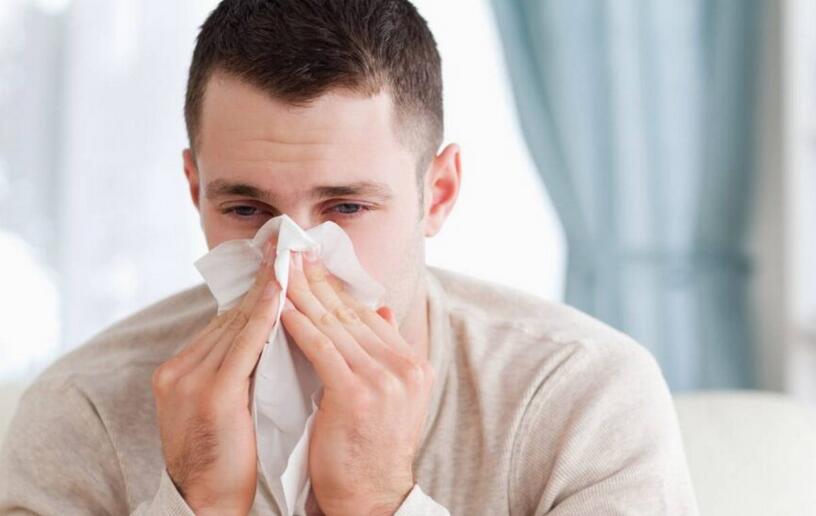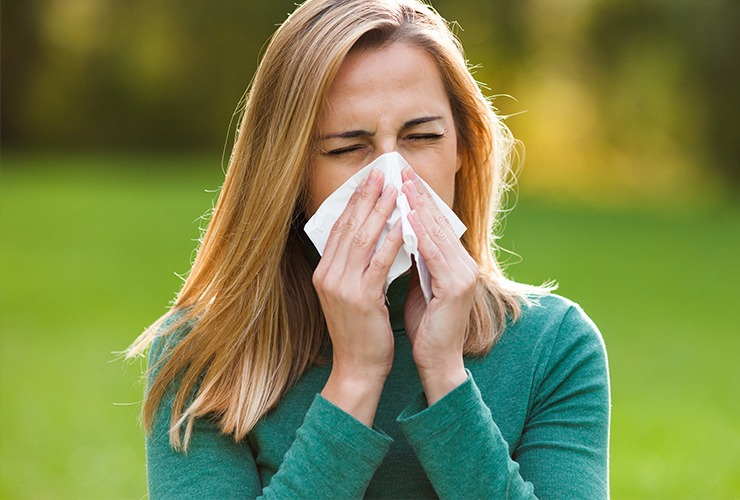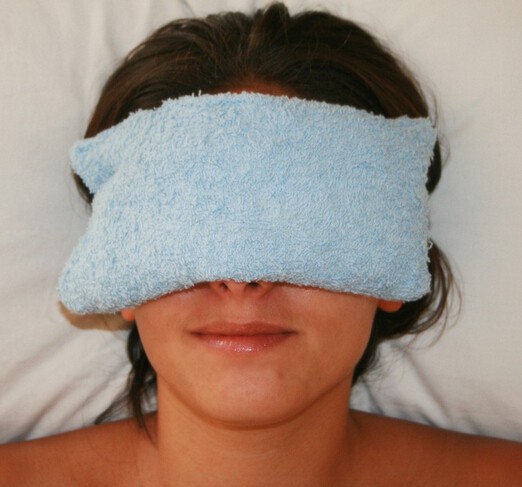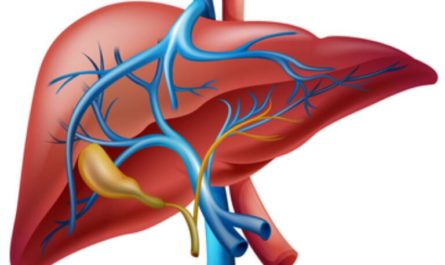A runny nose and watery eyes can be incredibly frustrating and uncomfortable symptoms. It can be caused by a variety of conditions like allergies, colds, sinus infections, and environmental irritants. So what is good for a runny nose and watery eyes? When it comes to finding relief, there are many home remedies. In this article, we’ll explore some of the best ways for runny nose and watery eyes.

Common Causes of Runny Nose and Watery Eyes
Before we dive into solutions, it helps to understand what’s really behind your runny nose and watery eye woes. Some of the most common culprits include:
1. Allergies
One of the biggest troublemakers behind runny noses and watery eyes is allergies. Whether it’s hay fever triggered by pollen, pet dander allergies, or a sensitivity to dust mites or mold, allergies can send your nasal passages and eyes into overdrive.
When you encounter an allergen your body mistakenly identifies as harmful, it releases histamine and other chemicals to try to expel the offending substance. This triggers inflammation in your nasal passages and eyes, leading to excessive mucus production, sneezing, and watery eyes.
2. Viral Infections
Another prime suspect behind the runny nose and watery eye? The common cold and other viral infections like the flu. When a virus enters your body, it triggers an immune response as your body tries to fight off the intruder.
As the infection progresses, you may notice the mucus turning thicker and more discolored as your immune cells arrive on the scene to battle the virus. Green or yellow mucus is a sign that your body is kicking its defenses into high gear.
3. Sinus Infections
Sometimes, excessive mucus production from a cold or allergy can lead to another runny nose and watery eye culprit: sinus infections or sinusitis.
When your nasal passages become inflamed and congested, it can prevent the normal drainage of mucus. This allows the mucus to build up in your sinus cavities, creating a breeding ground for viruses, bacteria, and fungi. The resulting sinus infection causes further inflammation, pain, and watery eyes.
Acute sinus infections often start as a cold or allergy flare-up. But if that runny nose and facial pain lasts more than 10-14 days, it’s likely to develop into a sinus infection that may require medical treatment.
4. Structural Abnormalities
In some cases, a runny nose and watery eyes could be caused by structural abnormalities like a deviated septum or nasal polyps. These physical obstructions can lead to a constant buildup of mucus and fluids, resulting in persistent nasal dripping and eye-watering.
5. Environmental Irritants
Exposure to strong irritants like smoke, chemicals, sudden temperature changes, or air pollution can also trigger a runny nose and watery, stinging eyes. Your body views these irritants as threats and responds by flushing them out with excess mucus production and eye-watering.
6. Hormonal Changes
For some people, fluctuations in hormones from pregnancy, menstruation, or other conditions can trigger increased nasal congestion and eye-watering.
The hormonal shifts may cause inflammation in the nasal passages and eyes, leading to excess mucus and fluid buildup. Many pregnant women experience heightened nasal stuffiness and runny noses during their pregnancy due to hormonal changes.
7. Non-allergic rhinitis
Some people experience chronic nasal inflammation and excess mucus production that isn’t caused by allergies. This is known as non-allergic rhinitis or vasomotor rhinitis. The reasons for this condition are still not fully understood, but it can lead to persistent runny noses, congestion, and post-nasal drip.
8. Certain Medications
Believe it or not, certain medications like birth control pills, blood pressure drugs, and antidepressants can sometimes cause runny noses and watery eyes as a side effect.
This is likely due to the way these drugs may affect nasal passage inflammation, fluid regulation, or blood flow in the body. If you develop these symptoms after starting a new medication, let your doctor know.
9. Dry Air
While it may seem counterintuitive, extremely dry air can trigger runny noses in some people. Dry air irritates and dries out the nasal passages, causing them to produce excess mucus to combat the dryness. This can lead to a constantly drippy, runny nose.
Using a humidifier, saline nasal spray or even just breathing over a bowl of hot water can help moisturize nasal passages and reduce excess mucus.

What is Good for Runny Nose and Watery Eyes?14 Home Remedies
Before turning to medications, you can try some home remedies. Here are some to consider:
1. Stay Hydrated
When you’re dealing with a runny nose, it’s crucial to stay hydrated. Drinking plenty of fluids can help thin out mucus, making it easier to expel. Opt for warm beverages like herbal tea, broth, or even good old-fashioned water. This can provide additional soothing benefits.
Avoid beverages that can dehydrate you, such as coffee, alcohol, and sugary drinks. These can make your symptoms worse. In addition, try to aim to drink at least 8 glasses of water or other hydrating fluids per day.
2. Try Herbal Teas
Certain varieties can be particularly helpful when you’re battling a runny nose and watery eyes. Look for teas that contain anti-inflammatory and antihistamine herbs, such as chamomile, ginger, mint, or nettle.
Not only can these teas help soothe your symptoms, but the steam from a hot cup can also provide relief by loosening mucus.
For an extra soothing touch, try adding a spoonful of raw honey to your tea. Honey has natural antibacterial and anti-inflammatory properties that can help calm irritation and soothe a sore throat.
3. Use a Humidifier
Dry air can exacerbate nasal and eye irritation, so running a humidifier in your home or office can be a game-changer. The added moisture can help thin out mucus and soothe your sinuses, making it easier to breathe.
Just be sure to clean your humidifier regularly according to the manufacturer’s instructions. A dirty humidifier can become a breeding ground for mold and bacteria. This can worsen your symptoms.
4. Inhale Steam
If you don’t have a humidifier on hand, you can still reap the benefits of steam by taking a hot shower or creating a DIY steam inhalation treatment. Simply fill a bowl with steaming hot water, drape a towel over your head, and breathe in the vapors.
The steam can help loosen mucus and provide relief for congestion. Just be careful not to get too close to the water, and take breaks if your face gets too hot.
For an extra soothing touch, try adding a few drops of essential oils like eucalyptus or peppermint to the steaming water. These oils can provide additional decongestant and anti-inflammatory benefits.
5. Try Saline Rinses
A simple saline solution can work wonders for clearing out your nasal passages. You can purchase pre-made saline rinses or make your own by mixing salt and warm water.
Gently rinse your nasal passages with the saline solution. This allows it to flush out any excess mucus or irritants. This can provide relief for both a runny nose and watery eyes.
For best results, use a neti pot or other nasal irrigation device to ensure the saline solution reaches your nasal cavities. And be sure to use sterile or distilled water to avoid introducing any harmful bacteria.

6. Apply Warm Compresses
Gently applying a warm, damp cloth to your eyes and nose can help soothe inflammation and encourage drainage. The warmth can also help loosen mucus, making it easier to expel.
Just be sure to use a clean cloth and avoid getting it too hot. This can further irritate your delicate nasal and eye areas.
For an extra soothing touch, try adding a few drops of soothing essential oils like lavender or chamomile to the warm water before soaking the cloth. These oils can provide additional anti-inflammatory and calming benefits.
7. Try Spicy Foods
While it might seem counterintuitive, spicy foods like chili peppers, horseradish, or ginger can help thin out mucus and clear your nasal passages. The heat from these foods can act as a natural decongestant for a runny nose and watery eyes.
Just be prepared for a temporary burning sensation. Be sure to stay hydrated to counteract any potential dehydrating effects. If you’re not a fan of spicy foods, you can also try adding a pinch of cayenne pepper to your meals.
8. Use Capsaicin Cream
If you’re not a fan of spicy foods, you can still reap the benefits of capsaicin by applying a capsaicin cream to your nose. Several studies have found that capsaicin is more effective at treating runny noses than some over-the-counter medications.
Just be sure to use caution when applying the cream, as it can cause a burning sensation if it gets in your eyes or mouth. Be sure to wash your hands thoroughly after application to avoid accidentally transferring the cream to sensitive areas.
9. Try Acupressure
Believe it or not, applying pressure to certain points on your face and body can help alleviate sinus pressure and congestion. Look up some acupressure techniques for sinus relief and give them a try!
While the science behind acupressure is still being studied, many people find it to be a safe and effective way.
One popular acupressure point for sinus relief is located between the eyebrows, just above the bridge of the nose. Gently apply pressure to this point with your fingertips for a few minutes at a time, taking breaks as needed.
10. Get Plenty of Rest
When you’re dealing with a runny nose and watery eyes, it’s important to listen to your body and get plenty of rest. Your immune system is working hard to fight off whatever is causing your symptoms. So it’s crucial to give it the support it needs. If you’re having trouble sleeping due to congestion or coughing, try propping yourself up with extra pillows.
11. Stay Hydrated (Again!)
We can’t stress this one enough – staying hydrated is crucial when you’re battling a runny nose and watery eyes. In addition to drinking plenty of fluids, you can also help prevent dehydration by blowing your nose regularly and moisturizing the skin around your nose to prevent soreness.
And don’t forget to wash your hands frequently to avoid spreading germs!
If you’re having trouble staying hydrated due to a lack of appetite or nausea, try sipping on electrolyte-rich beverages like sports drinks or coconut water.
12. Avoid Allergens
If your runny nose and watery eyes are caused by allergies, the easiest way to find relief is to avoid the allergen as much as possible. This might mean staying indoors on high pollen days, using a fan or air conditioner instead of opening windows, or limiting contact with pets if you’re allergic to dander.
Of course, it’s not always possible to completely avoid allergens, but limiting your exposure can go a long way in reducing your symptoms.
If you’re unsure of what’s causing your allergies, consider keeping a symptom diary to help identify potential triggers. If your allergies are severe or persistent, it may be worth consulting with an allergist to develop a more comprehensive treatment plan.
13. Try Quercetin Supplements
Quercetin is a flavonoid compound found naturally in many fruits and vegetables, and it has potent anti-inflammatory and antihistamine properties. Several studies have suggested that quercetin supplements can help alleviate symptoms of allergic rhinitis, including runny nose and watery eyes.
While you can get quercetin from foods like onions, apples, and berries, supplements can provide a more concentrated dose. Just be sure to consult with your healthcare provider before starting any new supplement, especially if you have any underlying health conditions or are taking medications.
14. Consider Probiotics
Probiotics are beneficial bacteria that can help support a healthy gut and immune system. Some research has suggested that probiotics may also help manage allergic rhinitis symptoms like runny nose and watery eyes.
You can get probiotics from fermented foods like yogurt, kefir, and sauerkraut, or you can take a probiotic supplement. As with any supplement, it’s a good idea to check with your healthcare provider first, especially if you have any underlying health conditions or are taking medications.

Prevention Tips for Runny Nose and Watery Eyes
Once you’ve got your runny nose and watery eyes under control, you’ll want to take steps to prevent future flare-ups. Here are some tips that may help:
1. Avoid allergens: Identify and avoid triggers that cause your runny nose and watery eyes. Common allergens include pollen, dust mites, pet dander, mold, and certain foods.
2. Keep your environment clean: Regularly clean your living space to minimize dust and allergens. Vacuum carpets, wash bedding in hot water, and dust surfaces frequently. This can help reduce the irritants that trigger your symptoms.
3. Use a saline nasal rinse: Rinse your nasal passages with a saline solution to help clear out mucus and irritants. This can provide temporary relief and help prevent congestion and a runny nose.
4. Stay hydrated: Drinking plenty of fluids can help thin mucus and keep your nasal passages moisturized. This can reduce the severity of a runny nose and watery eyes.
5. Avoid irritants: Stay away from strong odors, smoke, and other irritants that can worsen your symptoms. This includes perfumes, cleaning products, and certain chemicals.
6. Use a humidifier: Dry air can irritate your nasal passages and exacerbate your symptoms. Use a humidifier to add moisture to the air in your home, especially during the winter months.
7. Wash your hands frequently: Viral infections, such as the common cold, can cause a runny nose and watery eyes. Wash your hands regularly with soap and water to reduce the risk of infection and prevent the spread of germs.
8. Avoid touching your face: Touching your face, especially your nose and eyes, can transfer allergens or viruses from your hands to your mucous membranes. Try to avoid touching your face unnecessarily to reduce the chances of triggering symptoms.
9. Wear sunglasses: When outdoors, wear sunglasses to protect your eyes from pollen and other allergens. This can help reduce itchiness, redness, and excessive tearing.
When to See a Doctor?
While most cases of runny nose and watery eyes can be managed with home remedies, there are times when you should seek professional medical treatment:
- If symptoms persist for more than 10-14 days without improvement
- If you have a high fever over 101°F, severe sinus pain, or thick green/yellow nasal discharge
- If you experience vision changes, severe eye pain, or light sensitivity
- If you have difficulty breathing or swallowing
- If home treatment provides no relief at all






